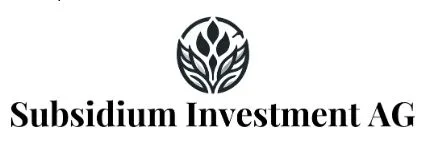How Do Cleaning Business Insurance and Bonding Work
Running a cleaning business involves more than managing schedules and keeping clients satisfied. It also comes with risks that can show up without warning. From broken items to workplace injuries, many situations can lead to costly problems.
Being prepared for these situations isn’t optional; it’s part of running a responsible and sustainable business. It is also essential to manage your brand’s reputation, particularly in the growing competitive landscape. According to IBISWorld, the number of companies offering janitorial services in the US increased by 4.7% from 2023 to 2024.
Insurance and bonding are two tools that help protect you from these risks. They offer coverage that supports your business financially while building trust with your clients. While some business owners see them as red tape, they’re better viewed as a form of protection.
This comprehensive guide offers all the information you need to understand cleaning business insurance and bonding.
Understanding Cleaning Business Insurance and Bonding
Cleaning business owners are familiar with the terms “insurance” and “bonding” but may not fully understand how they apply.
As noted by Moody Clean Insurance, insurance protects your company, your employees, and your assets. It helps cover damage, injuries, or claims related to accidents or mistakes. Bonding, on the other hand, is about protecting your client from losses caused by employee theft or service failures.
Cleaning business insurance and bonding cover both areas of protection. It’s a common requirement for cleaning companies looking to work with larger clients or government contracts. These clients often want proof that your company can handle problems responsibly in the event that anything goes wrong.
Getting both insurance and bonding shows that you’re prepared for unexpected situations. It also signals to your clients that your business takes its responsibilities seriously and follows industry standards.
According to Forbes, having a safety net, such as insurance and bonding, is also something that clients consider. When shopping around for cleaning service providers, one of the key considerations for customers is safety. They look for providers with proper coverage, including liability and workers’ compensation.
Types of Insurance to Consider
Choosing the right insurance starts with understanding the nature of your services. A solo cleaner may need basic coverage, while a larger company handling multiple locations will likely require more comprehensive protection. The types of business insurance coverage you need will vary based on the services offered, the number of employees, and other factors.
General liability insurance is a common starting point for businesses. It covers incidents like damaging a client’s property or someone getting injured due to your cleaning work. This coverage can prevent these incidents from becoming major financial setbacks.
If you have employees, workers’ compensation is often a legally required benefit. It provides coverage for workplace injuries, which can happen more often than people think in cleaning jobs. From chemical exposure to lifting injuries, having a plan in place helps protect both your staff and your business.
Some insurance coverage is also mandatory for businesses. According to the Small Business Administration (SBA), the federal government requires companies with employees to have the following coverage:
- Workers’ compensation
- Unemployment
- Disability insurance
The Role of Bonding in Building Client Trust
Bonding serves a different purpose than insurance. While insurance protects your business, bonding helps assure clients that they won’t be left covering the cost of issues caused by your staff.
Janitorial bonds are commonly required for cleaning companies and are often necessary when bidding on high-value contracts. There are also fidelity bonds that protect your company from losses incurred due to dishonest acts by employees.
Even if you’ve built a trustworthy team, having a bond shows professionalism. Some clients won’t consider a proposal unless the company is bonded. It gives them confidence that they’ll be reimbursed if something goes wrong due to dishonesty or negligence.
This added layer of protection can help you secure more jobs, especially from clients who have had less reliable service providers in the past.
Meeting Client Expectations and Legal Requirements
Many clients, especially commercial ones, require a certificate of insurance and proof of bonding before signing an agreement. These documents are not just formalities; they help your clients manage their own risks. If you’re unable to provide them, you might lose out on contracts, no matter how good your service is.
Legal requirements vary depending on your location and the size of your team. Some states require workers’ compensation once you hire even one employee. Other types of coverage may be necessary based on your specific operations.
Consider the example of D.C.’s green cleaning program. It requires cleaning businesses to provide the following insurance to get the grant:
- Commercial general liability insurance
- Automobile liability insurance
- Workers’ compensation insurance
- Technology liability, media liability, and cyber liability insurance
- Professional liability insurance
- Commercial umbrella or excess liability
Similarly, different regions will have a varying set of regulations to comply with. It’s a good idea to speak with a licensed agent who has a thorough understanding of the cleaning industry. They can help guide you through local rules and make sure your coverage meets both legal and client expectations.
Frequently Asked Questions
Do I need separate insurance for specialized cleaning services?
Yes, specialized cleaning services often involve higher risk and may require separate or additional insurance policies. For example, mold remediation may require environmental liability coverage, while biohazard cleanup may necessitate pollution liability or specific endorsements. You should determine your insurance requirements based on the services you provide for optimal coverage.
How much does cleaning business insurance typically cost?
The cost varies depending on several factors, including the size of your business, the number of employees, your location, etc. On average, small cleaning businesses in the U.S. pay between $500 and $2,000 annually for general liability insurance alone.
Can I obtain insurance and bonding for my new cleaning business?
Yes, many insurers and bonding companies work with new businesses. However, your premiums might be higher initially, and you may need to demonstrate strong operational practices or personal creditworthiness to qualify for a bond. Once you establish that you have strong operational practices, your premiums will likely decrease.
Insurance and bonding may not be the most exciting aspect of running a cleaning business. However, they play a significant role in your long-term success. They protect your business from the unexpected and help build the kind of trust that leads to stronger client relationships and more stable growth.
Taking the time to understand your needs and adjusting your coverage accordingly is one of the smartest decisions you can make. It demonstrates that your company is prepared, professional, and committed to delivering reliable service, regardless of the challenges that come your way.







